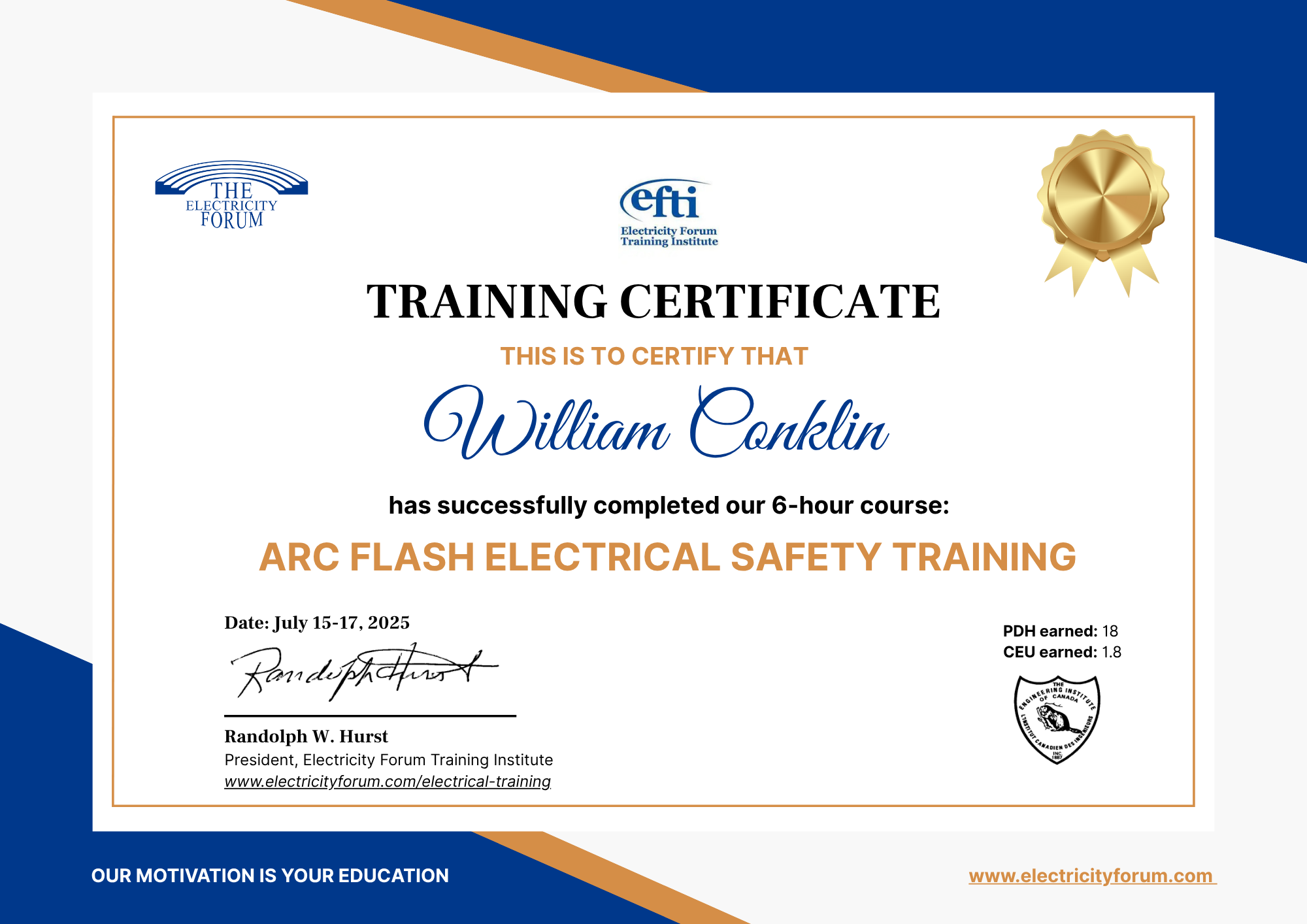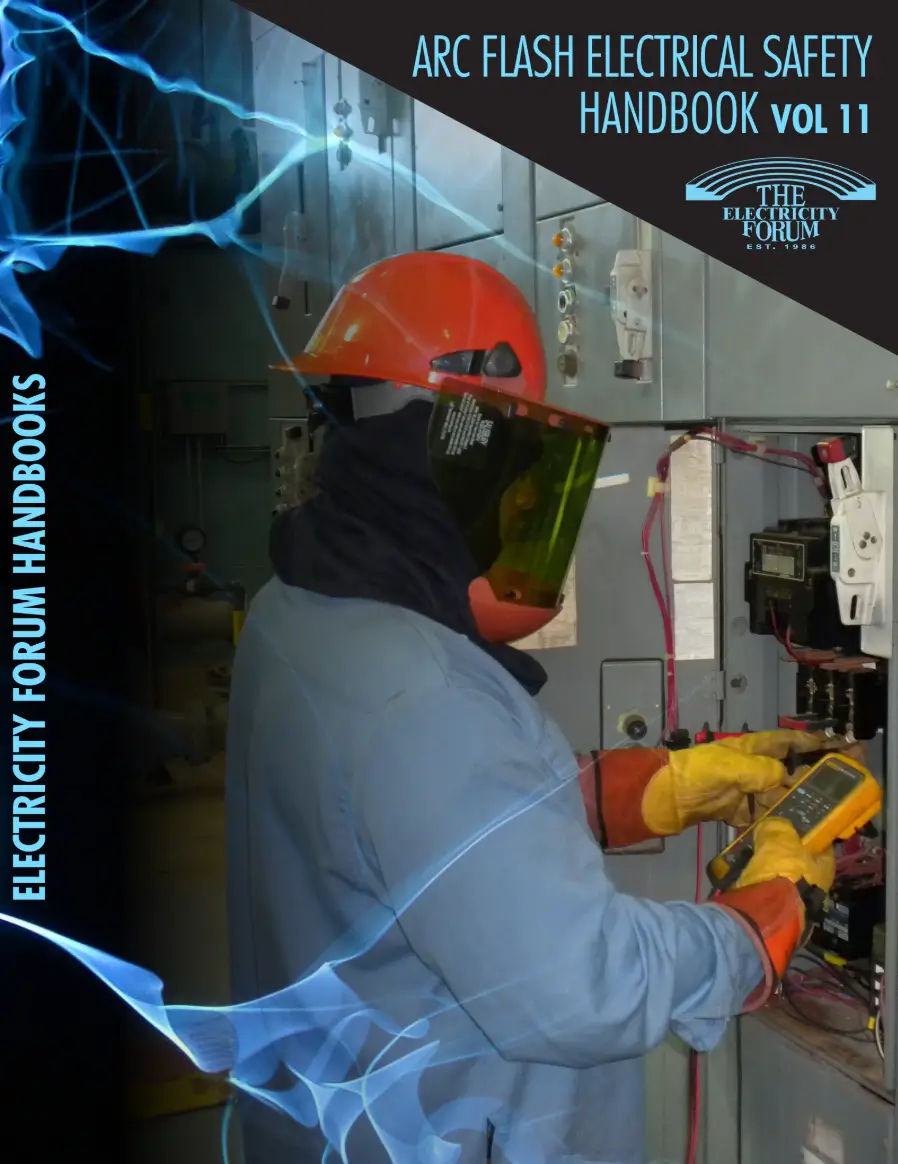Our 6-Hour NFPA 70E training course is a comprehensive electrical safety training program designed to help participants understand and apply the requirements of OSHA and NFPA 70E for compliance. The course emphasizes practical strategies for arc flash safety and shock protection in real-world electrical environments, exceeding NFPA 70E training requirements.
NFPA 70E Training Requirements
Our 6-hour live online instructor-led NFPA 70E training course prepares qualified electrical workers to meet the National Fire Protection Association’s electrical safety standard for workplace protection. It explains the critical relationship between OSHA and NFPA 70E, moving through the standard article by article to highlight essential arc flash requirements and best practices.
NFPA 70E training teaches electrical workers to recognize, evaluate, and control arc flash and shock hazards. This six-hour live online course helps ensure OSHA compliance, promotes safer workplaces, and reduces downtime by emphasizing effective electrical safety procedures and arc flash awareness.
NFPA 70E training is essential for anyone exposed to electrical hazards in the workplace, including electricians, maintenance personnel, contractors, engineers, supervisors, and safety professionals. For visual examples, visit our Arc Flash Video page.
While essential for qualified workers who install, maintain, and repair electrical systems, this NFPA 70E Training course also benefits facility managers, building owners, and unqualified staff who work near energized equipment. Understanding electrical hazards enables everyone to prevent accidents, reduce risk, and maintain productivity. See how training saves lives by reviewing Arc Flash Injuries.
A key element of NFPA 70E training is learning to identify exposed, energized parts, apply insulation and shielding correctly, and select the appropriate personal protective equipment (PPE). For NFPA 70E PPE ratings and categories, refer to our Arc Flash PPE guide.
NFPA 70E Training Benefits
This arc flash electrical safety course provides comprehensive instruction in arc flash safety, shock protection, and electrical hazard prevention, enabling professionals to reduce workplace risks and enhance compliance. Designed as a qualified electrical worker education program, it equips participants with the knowledge and skills to identify, assess, and control electrical hazards in accordance with OSHA and NFPA 70E compliance standards, ensuring safer work practices and reduced liability across industrial, commercial, and institutional environments.
NFPA 70E Arc Flash and Electrical Safety instruction provides major advantages for both individuals and organizations:
-
Enhanced safety: Workers learn to identify and mitigate arc flash and shock hazards.
-
OSHA compliance by providing instruction in the electrical safety practices required under OSHA 29 CFR 1910 Subpart S and NFPA 70E.
-
Accident reduction: Minimizes electrical injuries and equipment damage.
-
Greater efficiency: Trained workers perform tasks safely and confidently.
-
Cost savings: Preventing incidents reduces medical and operational costs.
Investing in this course enables organizations to establish a compliant, efficient, and safety-driven electrical culture.
NFPA 70E Training – What You Will Learn
This comprehensive NFPA 70E Training course teaches you to:
-
Identify and understand the risks associated with short circuits, electrical arcs, and arc flash hazards.
-
Interpret and apply results from an Arc Flash Risk Assessment to reduce incident energy exposure.
-
Select the correct PPE for each task and voltage level.
-
Apply safe electrical work procedures to prevent shock, electrocution, and arc-blast injuries.
-
Implement safety programs and procedures that meet OSHA and NFPA 70E compliance requirements.
Our NFPA 70E Training course focuses on safe work practices for operating and maintaining electrical systems.
Related Courses

















